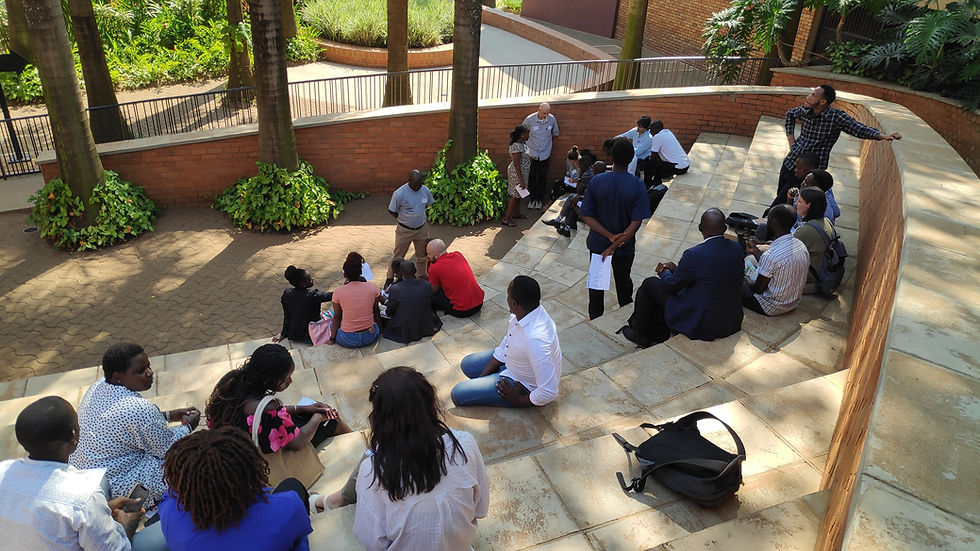Building new partnerships & schools together
- info8381132
- Feb 1, 2019
- 2 min read
The Feilden Foundation's technical field officer, Paul Kimera, is passionate about community work and sustainable construction.

Paul is the co-founder and manager of Technology for Tomorrow Ltd (T4T), a company that has made a significant contribution in shelter, water and sanitation technology development, particularly for rainwater harvesting technologies and waste management.
He has been advising on the RFF’s first pilot project in partnership with Build Africa and HYT Uganda, a new classroom block for Kumel Primary School near Kumi, in Eastern Uganda. Paul introduces the project and describes the working process:
The Kumel Primary School project has brought together the Richard Feilden Foundation
and charities HYT Uganda and Build Africa. Build Africa has supported many Ugandan
school projects, however this is its first pilot construction using Interlocking Stabilised Soil
Blocks (ISSB). The new classroom block which is currently underway and due for completion in Spring, seeks to model best practices in other areas of sustainable design and construction.
Participatory design was adopted for the model classroom block with the head teacher, teachers, School Management Committee, pupils and local council members all involved throughout the design and decision making process including site selection, orientation and material choices. The community even mapped out areas for planting trees and went ahead to adopt new knowledge on usage of outdoor spacing by placing a tree trunk in one of the shaded areas to serve as a seat for community meetings.
The participatory approach has continued into the construction stage with local contractors
associated with Build Africa receiving training provided by HYT Uganda on how to make ISSBs, and work with the blocks in construction. In addition to the contractors, a team of five local community members, including one woman, is undergoing training in the use of ISSB for the construction. This team underwent a highly competitive process to be selected for the training. It is hoped that they will go on to use these skills to improve their own livelihoods and impact the environment for better.
Due to the initial success of the design and construction process, Build Africa have
expressed interest in building a classroom block at another school, and some teacher
accommodation using the same principles of participatory and sustainable design and
construction. We hope to continue working in this partnership model to continue sharing our
knowledge and skills.
Paul Kimera, February 2019




Comments